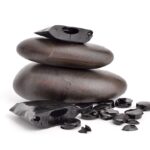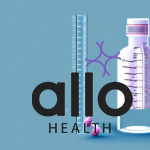Does Pumpkin Seeds Have Natural Viagra Benefits?

Allo Health is dedicated to personalized well-being, offering support and trusted information tailored to individual health goals. The platform emphasizes human-generated content, led by a distinguished medical team of experts, including physicians and sexual health specialists. Their commitment to credibility involves rigorous fact-checking, authoritative research, and continuous updates to ensure accurate, up-to-date information. Allo Health's unique approach goes beyond conventional platforms, providing expert-led insights and a continuous commitment to excellence, with user feedback playing a crucial role in shaping the platform's authoritative voice.

Dr.Sushma.V completed MBBS degree from BGS GIMS,bangalore
Why This Was Upated?
Our experts continually monitor the health and wellness space, and we update our articles when new information became available.
Updated on 18 March, 2024
- Article was updated as part of our commitment to diversity, equity, and inclusion.
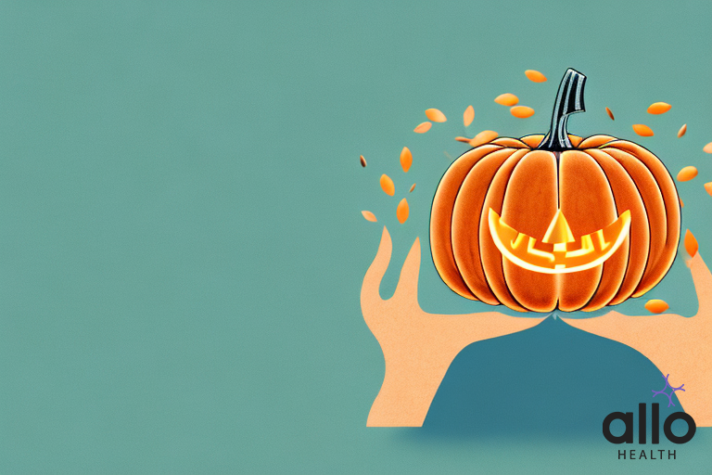
"The following blog article discusses food and diet-related information for general educational purposes. However, it is important to note that the information provided is not intended as personalized dietary advice and should not be considered a substitute for professional guidance from a registered dietitian or qualified healthcare professional. Before making any significant changes to your diet or nutrition plan, it is recommended to consult with a registered dietitian or healthcare professional.
Book consultation
Dietary changes can have a significant impact on your overall health and well-being. It is important to approach any changes to your diet in a balanced and sustainable manner, ensuring that you meet your nutritional needs and avoid any potential nutrient deficiencies. Rapid or extreme changes in dietary patterns can be detrimental to your health and may require professional guidance.
It is crucial to note that any specific dietary recommendations or guidelines mentioned in this article may not be appropriate for individuals with specific medical conditions, allergies, or intolerances. A registered dietitian or healthcare professional can provide individualized advice, including modifications or alternative food choices to accommodate your unique circumstances.
The information provided in this article may not encompass all possible dietary considerations or account for the latest research and nutritional guidelines."
If you’re looking for a natural way to enhance your sexual health, pumpkin seeds may be the perfect solution for you. These tiny powerhouses are packed with nutrients that can help improve your libido and boost your testosterone levels naturally, without the side effects that often come with traditional pharmaceuticals like Viagra.
What Are Pumpkin Seeds?
Pumpkin seeds, also known as pepitas, are the edible seeds of pumpkins. They are flat, oval-shaped seeds with a white outer husk and a green inner kernel. Pumpkin seeds have a rich history of culinary and medicinal uses, and they are enjoyed in various cuisines around the world. Here are some detailed aspects of pumpkin seeds:
- Botanical Origin:
- Pumpkin seeds come from the Cucurbita pepo species, which includes various types of pumpkins and squash.
- The seeds are typically found in the center of the pumpkin, surrounded by the fibrous pulp.
- Nutritional Composition:
- Pumpkin seeds are nutrient-dense and provide a good source of protein, healthy fats, vitamins and minerals.
- They are particularly rich in:
- Protein: Essential for muscle repair and overall body function.
- Healthy Fats: Primarily monounsaturated and polyunsaturated fats, including omega-3 and omega-6 fatty acids.
- Fiber: Aids in digestion and helps maintain a healthy digestive system.
- Minerals: Such as magnesium, potassium, zinc, and iron.
- Vitamins: Including vitamin K, vitamin E, and certain B vitamins.
- Health Benefits:
- Heart Health: The presence of unsaturated fats and phytosterols in pumpkin seeds may contribute to heart health by reducing cholesterol levels.
- Magnesium Content: Pumpkin seeds are a good source of magnesium, which is essential for various physiological functions, including muscle and nerve function, blood sugar control, and bone health.
- Antioxidants: They contain antioxidants like vitamin E and carotenoids, which help protect cells from oxidative damage.
- Culinary Uses:
- Pumpkin seeds can be consumed raw, roasted, or salted as a snack.
- They are often added to salads, granola, yogurt, or used as a topping for soups and cereals.
- Pumpkin seed oil is also extracted and used in culinary applications, adding a nutty flavor to dishes.
- Medicinal Uses: Traditional medicine has used pumpkin seeds for various purposes, including treating parasitic infections, supporting prostate health, and promoting urinary health.
- Culinary and Cultural Significance:
- Pumpkin seeds are a popular ingredient in Mexican cuisine, where they are often used in sauces, salsas and mole dishes.
- In some cultures, roasted pumpkin seeds are a traditional snack during the fall season, especially around Halloween and Thanksgiving.
- Commercial Availability:
- Pumpkin seeds are widely available in grocery stores, health food stores, and online markets.
- They can be purchased raw, roasted, salted, or as part of various trail mixes.
In summary, pumpkin seeds are not only a tasty and versatile snack but also offer a range of nutritional benefits. Their historical use in traditional medicine further adds to their cultural and culinary significance.
Health Benefits Of Pumpkin Seeds
Pumpkin seeds, also known as pepitas, offer a variety of health benefits due to their rich nutritional profile. Here are some detailed health benefits associated with consuming pumpkin seeds:
- Nutrient-Rich Composition:
- Pumpkin seeds are a good source of essential nutrients, including protein, healthy fats, fiber, vitamins and minerals.
- They contain important minerals such as magnesium, potassium, zinc, iron and phosphorus, which play crucial roles in various physiological functions.
- Heart Health:
- Omega-3 Fatty Acids: Pumpkin seeds contain omega-3 fatty acids, which are known to support heart health by reducing inflammation and improving cholesterol levels.
- Phytosterols: These plant compounds found in pumpkin seeds can help lower LDL cholesterol levels, contributing to cardiovascular health.
- Rich in Antioxidants: Pumpkin seeds contain antioxidants, including vitamin E and carotenoids, which help combat oxidative stress and protect cells from damage caused by free radicals.
- Magnesium for Muscle and Nerve Function:
- Pumpkin seeds are a excellent source of magnesium, a mineral essential for muscle and nerve function, blood sugar regulation, and bone health.
- Adequate magnesium intake has been associated with a lower risk of heart disease and improved overall cardiovascular health.
- Prostate Health:
- Pumpkin seeds have been traditionally used to support prostate health.
- They contain compounds like phytosterols and zinc, which may contribute to maintaining a healthy prostate.
- Improved Sleep Quality:
- Magnesium, present in pumpkin seeds, is known to play a role in promoting better sleep quality.
- It helps regulate neurotransmitters that contribute to relaxation and sleep.
- Blood Sugar Regulation:
- The combination of protein, healthy fats, and fiber in pumpkin seeds may contribute to stabilizing blood sugar levels.
- This can be beneficial for individuals with diabetes or those aiming to manage their blood sugar.
- Immune System Support:
- The zinc content in pumpkin seeds is important for immune system function and wound healing.
- Zinc deficiency can compromise the immune response, making pumpkin seeds a valuable addition to a healthy diet.
- Anti-Inflammatory Properties: The presence of antioxidants and omega-3 fatty acids in pumpkin seeds may help reduce inflammation in the body, which is linked to various chronic diseases.
- Weight Management: The combination of protein, fiber, and healthy fats in pumpkin seeds can contribute to a feeling of fullness, potentially aiding in weight management by reducing overall calorie intake.
While pumpkin seeds offer these health benefits, they should be consumed as part of a balanced and varied diet. Additionally, individual dietary needs and health conditions may vary, so it’s advisable to consult with a healthcare professional or nutritionist for personalized advice.
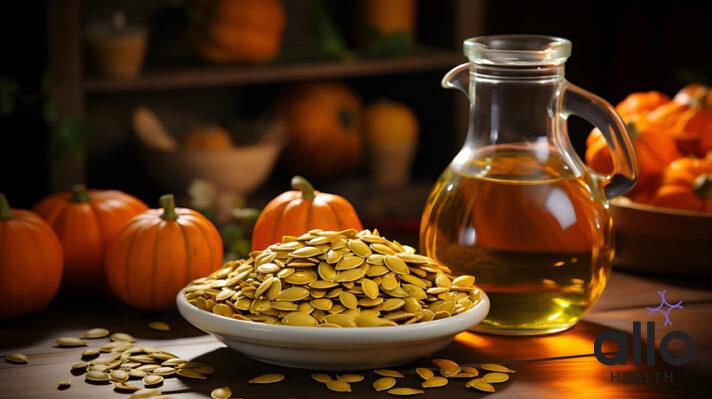
Does Pumpkin Seeds Have Natural Viagra Benefits?
The idea that pumpkin seeds have natural Viagra-like benefits is rooted in the nutritional content of these seeds and their potential impact on certain aspects of sexual health. But, it’s crucial to note that while some nutrients in pumpkin seeds may contribute to overall well-being, there is no scientific evidence to support the claim that they function as a natural Viagra.
Here are some aspects of pumpkin seeds that are often associated with potential benefits for sexual health:
- Zinc Content:
- Pumpkin seeds are a good source of zinc, a mineral that plays a role in the production of testosterone, a hormone important for sexual function in both men and women.
- Adequate zinc levels are essential for maintaining reproductive health, but it’s important to note that excessive zinc intake doesn’t necessarily equate to improved sexual function.
- Arginine Content:
- Pumpkin seeds contain arginine, an amino acid that can be converted into nitric oxide. Nitric oxide is known to help relax blood vessels, which may contribute to improved blood flow.
- Enhanced blood flow is a key factor in erectile function, and arginine is sometimes used in supplements aimed at supporting sexual health.
- Omega-3 Fatty Acids: Pumpkin seeds contain omega-3 fatty acids, which are beneficial for overall cardiovascular health. A healthy cardiovascular system is crucial for maintaining proper blood circulation, including to the genitals.
While these aspects suggest that the nutrients in pumpkin seeds may play a role in supporting general health, it’s essential to emphasize that there is no direct evidence to classify pumpkin seeds as a natural substitute for Viagra or other prescription medications for erectile dysfunction.
If someone is experiencing sexual health concerns, it’s important to consult with a healthcare professional. Erectile dysfunction and other sexual health concerns may have various underlying causes, including physical, psychological or a combination of factors. A healthcare provider can help identify the root cause and recommend appropriate interventions or treatments based on an individual’s specific health needs.
While pumpkin seeds may contribute to overall health and wellness, it’s crucial to rely on evidence-based treatments and consult with healthcare professionals for specific sexual health concerns.
Does Pumpkin Seeds Have Any Effect On Sperm?
Pumpkin seeds are rich in nutrients that may have potential benefits for male reproductive health. While there is limited specific research on the direct impact of pumpkin seeds on sperm, several components in these seeds could contribute to overall reproductive well-being.
- Zinc Content: Pumpkin seeds are a good source of zinc, a mineral essential for sperm production and function. Adequate zinc levels are crucial for maintaining the structural integrity of sperm cells and may influence fertility positively.
- Omega-3 Fatty Acids: Omega-3 fatty acids found in pumpkin seeds are known for their anti-inflammatory properties and cardiovascular benefits. A healthy cardiovascular system supports proper blood flow, including to the reproductive organs, potentially benefiting sperm health.
- Antioxidants: Pumpkin seeds contain antioxidants like vitamin E and carotenoids. These antioxidants help protect sperm cells from oxidative stress, which can contribute to sperm DNA damage. Maintaining sperm DNA integrity is important for fertility.
- Arginine: Pumpkin seeds contain arginine, an amino acid that plays a role in the synthesis of nitric oxide. Nitric oxide can help improve blood circulation, which may indirectly benefit reproductive organs.
- Fiber and Nutrient Support: The overall nutritional profile of pumpkin seeds, including protein, fiber, and various vitamins and minerals, supports general health. A healthy body is better equipped to support reproductive functions, including sperm production.
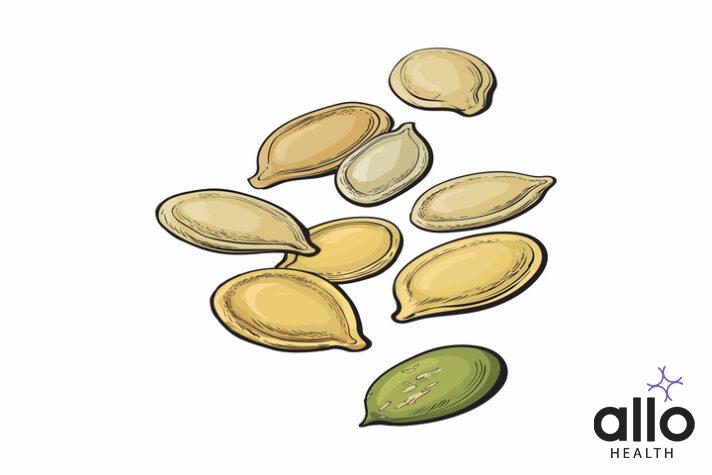
While these aspects suggest that including pumpkin seeds in a balanced diet may be supportive of male reproductive health, it’s crucial to note that dietary factors are just one aspect of overall fertility. Lifestyle factors, overall health, and potential medical conditions can also influence fertility. If individuals or couples are experiencing fertility concerns, it is advisable to seek guidance from a healthcare professional or a fertility specialist for a comprehensive assessment and personalized advice.
How To Consume Pumpkin Seeds?
Pumpkin seeds, also known as pepitas, are versatile and can be enjoyed in various ways. Here’s a guide on how to consume pumpkin seeds along with some precautions:
- Raw and Unsalted:
- How to Consume: Eat them raw for a natural and nutty flavor.
- Precautions: Choose unsalted varieties to avoid excessive sodium intake. Consuming in moderation is key to prevent overeating.
- Roasted Pumpkin Seeds:
- How to Consume: Roast seeds with a bit of olive oil and your preferred seasonings for a crunchy and savory snack.
- Precautions: Be mindful of added salt and oil during roasting. Excessive salt may contribute to increased sodium intake.
- Sprinkled on Salads or Yogurt:
- How to Consume: Add pumpkin seeds to salads, yogurt, or smoothie bowls for a nutritional boost.
- Precautions: Check portion sizes to avoid excessive calorie intake. Ensure the seeds are properly stored to maintain freshness.
- Pumpkin Seed Butter:
- How to Consume: Use pumpkin seed butter as a spread on toast or as an ingredient in smoothies.
- Precautions: Be aware of added sugars or oils in commercially available pumpkin seed butter. Opt for natural, unsweetened varieties.
- In Baked Goods:
- How to Consume: Incorporate pumpkin seeds into muffins, bread, or granola for added crunch.
- Precautions: Adjust recipes to avoid excessive calorie or fat content. Be mindful of added sugars in baked goods.
- Pumpkin Seed Oil:
- How to Consume: Use pumpkin seed oil as a salad dressing or drizzle it over dishes for a rich, nutty flavor.
- Precautions: Store pumpkin seed oil properly to prevent oxidation. Use in moderation due to its concentrated flavor.
- Snack Mixes:
- How to Consume: Combine pumpkin seeds with other nuts, dried fruits, and whole grains for a nutritious trail mix.
- Precautions: Watch portion sizes, especially if the mix contains added sugars or salts. Check for allergies to other ingredients.
Precautions for Consuming Pumpkin Seeds:
- Allergies: Individuals with seed allergies should exercise caution and consult with a healthcare professional before consuming pumpkin seeds.
- Portion Control: While nutrient-dense, pumpkin seeds are calorie-rich. Consuming them in moderation is important to avoid excess calorie intake.
- Added Ingredients: Check commercially available products for added sugars, salts, or unhealthy oils. Opt for natural and minimally processed options.
- Storage: Store pumpkin seeds in a cool, dark place to prevent rancidity. Refrigerate or freeze them for longer shelf life.
- Phytic Acid: Pumpkin seeds contain phytic acid, an antinutrient that may reduce mineral absorption. Soaking or roasting the seeds can help mitigate this effect.
Always consult with a healthcare professional or nutritionist, especially if you have specific dietary concerns or health conditions, to ensure that the inclusion of pumpkin seeds aligns with your overall well-being.
Most Asked Questions
-
Can pumpkin seeds be considered a natural alternative to Viagra for sexual health?
While pumpkin seeds contain nutrients like zinc and arginine that are associated with sexual health, there is no scientific evidence to support the claim that they function as a natural substitute for Viagra. Erectile dysfunction is a complex concern, and it's essential to consult with a healthcare professional for appropriate guidance.
-
How does zinc in pumpkin seeds affect sexual health?
Zinc is crucial for testosterone production, a hormone important for sexual function. But, consuming pumpkin seeds alone may not guarantee improved sexual function. Maintaining a balanced diet with adequate zinc is essential, but excessive intake doesn't necessarily lead to enhanced sexual performance.
-
Can arginine in pumpkin seeds help with erectile function?
Arginine can be converted into nitric oxide, which may help relax blood vessels and improve blood flow. While arginine is sometimes used in supplements for sexual health, relying solely on pumpkin seeds for this purpose may not provide sufficient levels to impact erectile function significantly.
-
Are omega-3 fatty acids in pumpkin seeds beneficial for sexual health?
Omega-3 fatty acids in pumpkin seeds contribute to overall cardiovascular health, supporting proper blood circulation. While a healthy cardiovascular system is important for sexual function, consuming pumpkin seeds alone is unlikely to address specific sexual health concerns.
-
Can pumpkin seeds help with libido and sexual desire?
Pumpkin seeds contain nutrients that may support overall health, including sexual well-being. But, individual responses vary, and factors influencing libido are multifaceted. Incorporating a variety of nutrients through a balanced diet is important, and any concerns about libido should be discussed with a healthcare professional for personalized advice.

